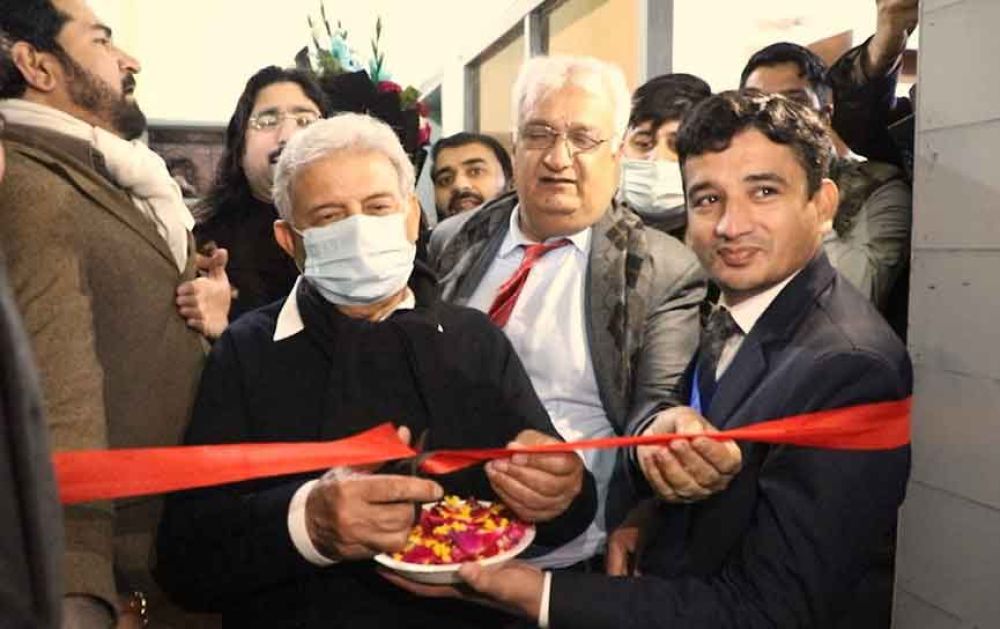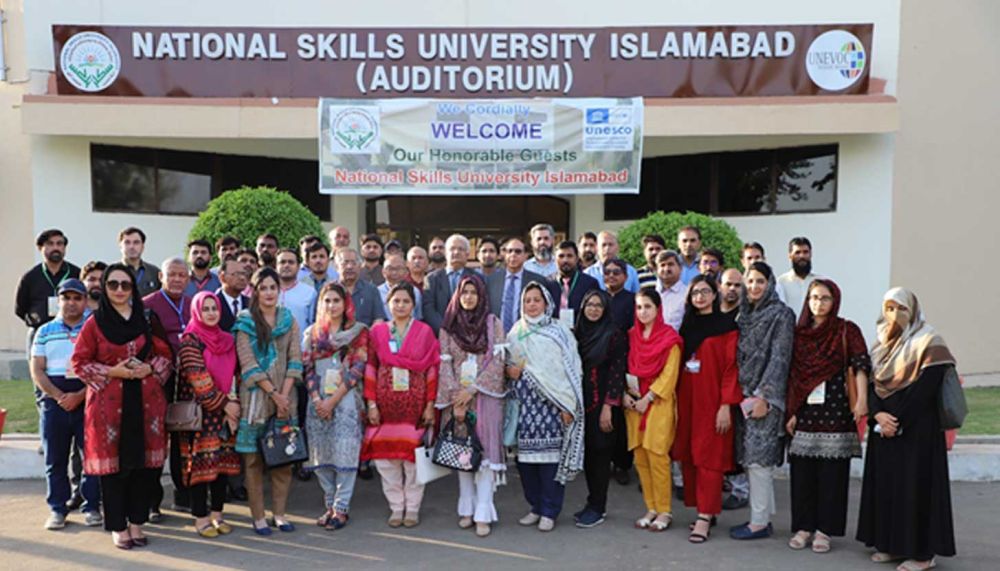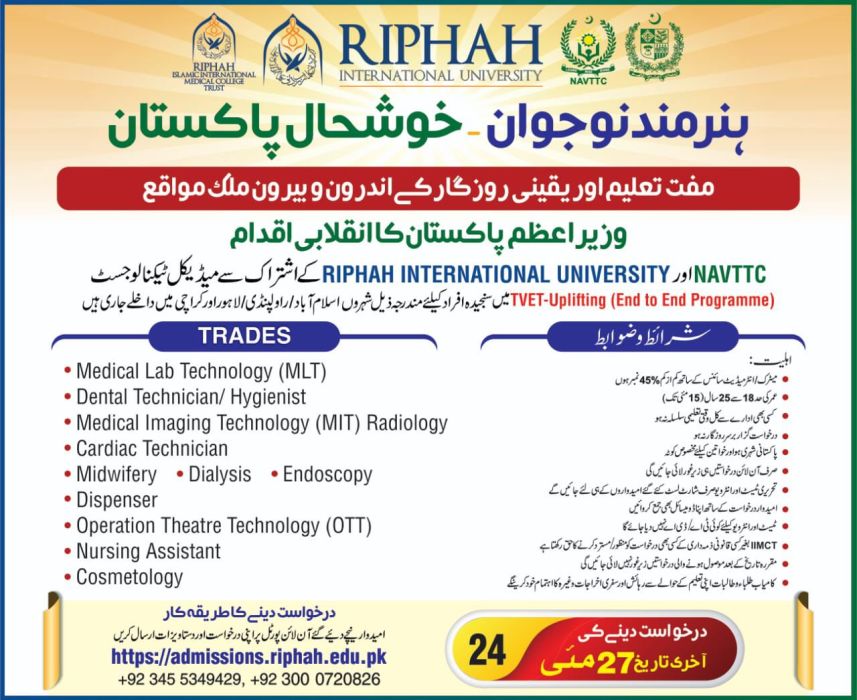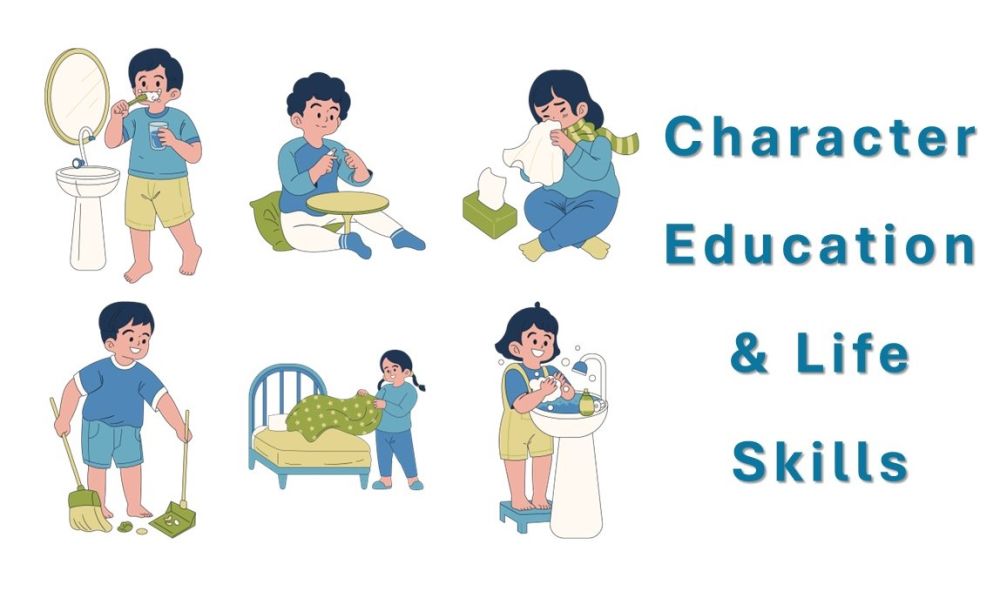Power of Learning New Skills - How a Pakistani Butcher Becomes a Successful Businessman
Posted 1 year ago
HunarNama Editorial By: Dr Ijaz Ahmad Tarar, ENVIRONMENTAL HORIZONS CO. Riyadh, Saudi Arabia
Before describing the story of a young Pakistani boy who never attended school, I want to discuss the current job market. This story dates back 50 years, and now we live in a more technologically oriented world than in the past. Before we go into retrospect, let's share the prospects for Pakistani youth with you.
Learning contemporary skills is the passage to survival and thrive in today's fast-paced and ever-evolving world. Skills comprising soft and hard competencies are crucial for securing jobs, enhancing life prospects, and personal grooming. Acquiring skills aligning with job market demands enables individuals to navigate and succeed in a globalized environment. Nowadays, Pakistan faces a youth bulge that is looking for contemporary skills to contribute effectively to fast-changing workplaces. Providing opportunities to learn new skills will address the challenges of unemployment and leverage their immense potential for national development.
In fast-changing technological economies, soft skills, such as effective communication, teamwork, leadership, problem-solving, time management, and adaptability, are essential for harmonizing with others and managing various life situations. On the other hand, hard skills, including technical proficiency, data analysis, project management, foreign language proficiency, and digital literacy, are specific, teachable abilities necessary for particular jobs. Combining these skills makes individuals competitive in the job market and better equipped to handle career advancement opportunities.
In an increasingly competitive job market, employers hire candidates who possess a blend of soft and hard skills. For instance, a software developer with excellent communication and teamwork abilities is more valuable than one with just technical skills. Mastering these contemporary skills facilitates career growth. Effective communication and leadership skills create opportunities for managerial roles, while technical skills ensure proficiency in job-specific tasks. Additionally, proficiency in foreign languages and cultural adaptability enable individuals to work and thrive in diverse international settings, expanding their career opportunities globally.
The benefits of contemporary skills extend beyond professional life. Soft skills such as problem-solving, adaptability, including time management contribute significantly to personal growth, enabling individuals to handle life's challenges more effectively. For those inclined towards entrepreneurship, combining technical skills, marketing knowledge, and effective communication is essential for building and sustaining a successful business.
Acquisition of contemporary skills requires a proactive approach. Enrolling in courses and certifications, participating in industry-specific workshops and seminars, gaining hands-on experience through internships, seeking guidance from mentors, and utilizing self-learning resources like books and online tutorials are effective ways to acquire and refine these skills. Platforms like Coursera, edX, Khan Academy, and several othersers offer a wide range of courses that can help individuals stay updated with the latest trends and technologies.
Pakistan is home to a vibrant and dynamic youth population with tremendous potential. However, unemployment remains a significant challenge, with many young people needing help finding suitable job opportunities. Bridging the skills gap by equipping youth with contemporary skills can transform this potential into tangible outcomes. By acquiring in-demand skills, Pakistani youth can enhance their employability and reduce unemployment. IT, digital marketing, and project management skills are particularly relevant in the current job market.
With proper training and education, the youth can contribute to several sectors, such as technology, healthcare, and renewable energy, driving economic growth and innovation. A skilled workforce attracts foreign businesses and boosts Pakistan's position in the global economy. Fluency in languages like English, Mandarin, or Arabic, including several others, can open doors to international business opportunities. Encouraging entrepreneurial ventures by providing the necessary skills and resources can create new job opportunities and stimulate economic activity.
Educational institutions, policymakers, and industry leaders must collaborate and create opportunities for skill development, ensuring that Pakistan's youth are well-prepared to meet future challenges.
Case study
Inspiring youth with success stories is one of the most effective motivational efforts. Here, we narrate the inspiring story of Mr. Zafar Hayat, a successful Pakistani businessman who earned billions through hard work and mastering the German language with minimal formal education. Currently at 60, Zafar runs two successful businesses in Pakistan and Germany.
To support his parents in running the family in the 1980s, Zafar worked at a butcher shop in Lahore when he was just twelve. With four siblings, a father, and a mother working in homes, Zafar's contribution was vital in running the family. The daily meat from the job was a crucial food source for his family. He managed the shop efficiently, and despite tough times, he never lost hope for a better future. His prayers for prosperity were answered when a Pakistani-born German-speaking customer who had lived in Germany sparked his interest in the language.
With good memory and dedication, Zafar quickly became conversational in German, practicing regularly with the customer, despite his boss's disapproval. He bought a radio and began listening to German news, retaining most of what he heard. After several months, he learned about the German center in Lahore. Zafar spent those days at the Goethe-Institut in Lahore, where the butcher shop was closed on Tuesdays and Wednesdays. His clean appearance and decent clothes helped him blend in, and a German teacher there, impressed by his skills, admitted him to a language course. At seventeen, Zafar started learning German, including reading and writing, surprising many due to his illiteracy in Urdu.
A German embassy employee was impressed by Zafar's language skills and suggested he move to Germany due to the high demand for butchers. Despite financial constraints, the employee used his influence to arrange Zafar's ID, passport, and visa. Zafar received an embassy ticket at eighteen and secured a job in Germany.
Upon arrival, his new employer picked him up from the airport and provided accommodation, food, and a good salary. Zafar excelled at the workshop, quickly becoming a valued worker. He noticed the high demand for halal meat among the large Turkish Muslim population. Partnering with his employer, they started a prosperous halal meat business. Eventually, Zafar established his own business, bringing his entire family to Germany and helping those who supported him.
Years later, reflecting on his journey, Zafar realized the transformative power of learning a foreign language. He often advises others that even if they have no other skills, learning a foreign language can transform their lives, just as it did for him. His story, from a butcher shop in Lahore to a successful businessman in Germany, is a testament to resilience, hard work, and the power of language.





